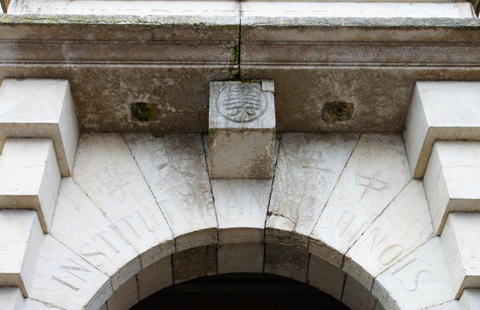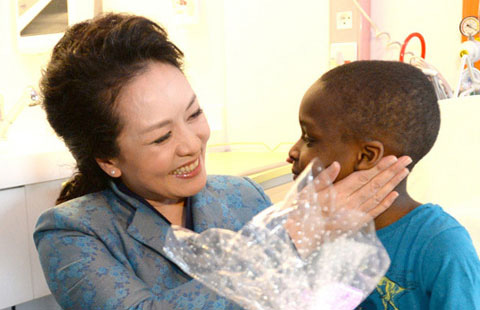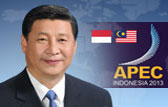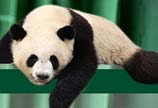Bridging divides
Updated: 2014-03-21 08:14
By By Fu Jing and Martin Banks in Brussels and Li Xiang in Paris (China Daily Europe)
Comments Print Mail Large Medium SmallStrategic engagements
Shada Islam, policy director of the think tank Friends of Europe in Brussels, says Xi's visit shows that Beijing has raised its level of strategic interaction with the EU and member states.
"This is likely to reassure the EU that it is still viewed as a pivotal player in Europe-China relations and that China is not - as feared by some - ignoring and sidelining Brussels in favor of building stronger relations with EU member states."
Islam says the visit is a good diplomatic move by Beijing and a sign of a significant improvement in Sino-European ties, especially personal relations and the establishment of trust between European and Chinese leaders.
It is also significant that Xi will meet Herman Van Rompuy and Jose Manuel Barroso, the top EU leaders, and the European Parliament President Martin Schulz, who is being widely tipped as the next president of the European Commission, she says.
Islam says the Europe-China partnership is multifaceted and covers a number of important areas.
"Europeans are following China's new reform agenda very carefully and are hoping that the momentum on economic liberalization, reform of the SOE (state-owned enterprises) sector and the drive for greater financial openness will continue.
"They are, of course, concerned about the rising levels of pollution in China and could want more details about China's 'war on pollution' as well as efforts to fight corruption," she says, adding that Europeans realize more than ever that in a post-eurozone crisis world, global growth and jobs depend on China's continuing growth and will be seeking reassurances about access to China's markets.
Ukraine and Russia are likely to be key points on the agenda, with Europeans seeking to understand China's position on the events in Ukraine, Islam says. "Discussions may also center on the Democratic People's Republic of Korea, Syria and Iran."
Investment drive
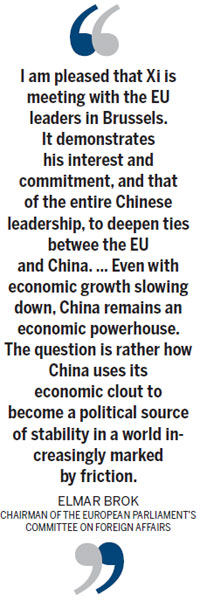
Boudewijn Poldermans, senior adviser to the board of management of the Netherlands Trade Promotion Council, says this is the first time that a Chinese president has visited the Netherlands. This is also Xi's first visit to Europe since becoming president and the first incoming state visit for King Willem Alexander.
Poldermans says the EU is most important trading partner, and the Netherlands is the second largest trading and investment partner among all EU countries.
"We are honored and pleased that this ranking has been recognized by the Chinese leadership," Poldermans says.
Expectations are high that the China-EU Investment Agreement will be signed soon after Xi's visit to Europe, he says. He believes that such an agreement would facilitate and boost investment and trade between the two economies.
"I hope that this will also lead to China being recognized as a market economy by Brussels," Poldermans says.
Deepening of reform and opening-up and the implementation of an innovation-driven development strategy with an average GDP growth rate of about 7.5 percent as reiterated by Premier Li Keqiang during the recent annual session of the National People's Congress will promote reform, address severe pollution and improve people's livelihoods in China, Poldermans says.
"This will definitely give rise to many new business opportunities," he says.
Poldermans says the Netherlands is a politically stable country with a strong, internationally focused economy and business and is strategically located in Europe. It has excellent infrastructure with seaports and one of the best airports in the world, he says. Moreover the Netherlands government strongly supports foreign investment and offers several tax benefits and other incentives.
In addition, it has an excellent telecommunications network and several successful industries such as agriculture, financial services, oil and gas, life sciences, biotechnology, high-tech food processing, creative industries, transport and logistics, chemicals and information technology.
Poldermans also cites recent studies that show Europe is one of the fastest growing investment destinations for China.
"Chinese investors are shifting their focus from the US to Europe because of the larger market and distribution channels and because it is easier to acquire advanced technologies in Europe."
Chinese enterprises view the Netherlands as a perfect base to tap the European market, he says. There are 366 large Chinese enterprises that have subsidiaries in the Netherlands or have acquired local companies, and most of them are successful.
In addition, there are more than 9,000 first-generation Chinese SMEs in the Netherlands. Some of the prominent acquisitions by Chinese companies there include the takeover of TIP Trailer Services by HNA (Hainan Airlines Group) and Chinese food giant COFCO's purchase of Dutch grain trader Nidera.
"I expect many more will follow this year, especially in the agriculture/agro-industry and food sectors and in high technology, clean technology, bio technology and consumer products," Poldermans says.

